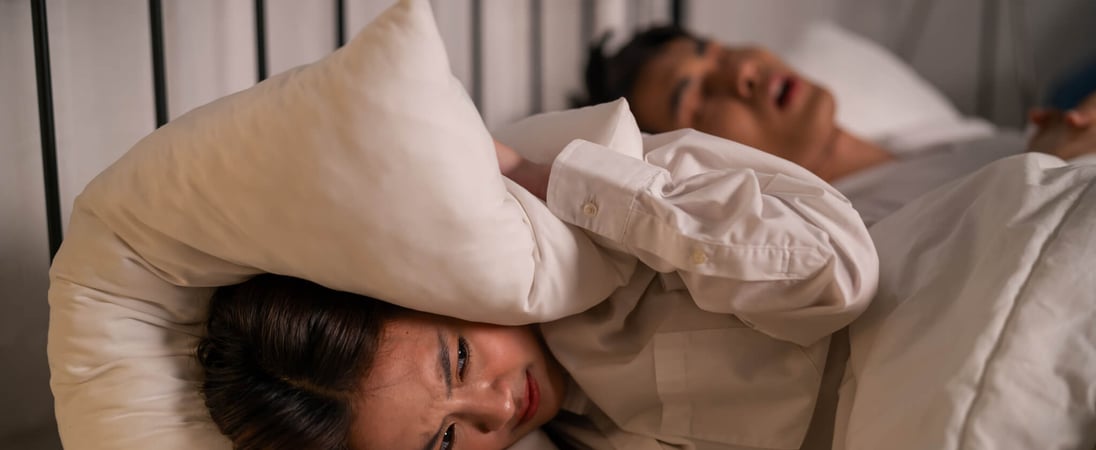
National Stop Snoring Week
National Stop Snoring Week is a week to focus on snoring. It is often the source of jokes. But the reality is that it can be a first sign of larger, sometimes unseen, health concerns. This annual week of observance can help raise national awareness about snoring!
It also zeroes in on the related health risks, including obstructive sleep apnea. This week encourages those who deal with nightly snoring to find solutions. It also promotes the importance of sleep health.
How to Celebrate National Stop Snoring Week
Celebrating National Stop Snoring Week means both personal action and public awareness. Here are some ways to participate:
Consult a Healthcare Professional
Regular snoring can be a sign of underlying health issues. Consulting a doctor or sleep specialist can lead to early diagnosis and effective treatment plans, including CPAP therapy or oral appliance therapy.
Embrace Technology for Better Sleep
The digital age offers many apps and gadgets designed to improve sleep quality. From white noise machines to sleep tracking apps, these tools can help create a more sleep-friendly environment and monitor sleep patterns.
Educational Outreach and Awareness
Use this week to educate yourself and others about the implications of snoring. Share articles, infographics, and personal stories on social media. Awareness can lead to greater empathy and support for those who snore and their partners.
Lifestyle Modifications
Small changes can make a big difference. Weight loss, avoiding alcohol before bedtime, and establishing a regular sleep routine can reduce snoring. Also, sleeping on one’s side instead of the back can prevent the tongue from blocking the throat.
Create a Conducive Sleep Environment
Invest in a comfortable mattress and pillows that support proper neck and back alignment. Consider using humidifiers if dry air aggravates snoring. Ensure the bedroom is dark, quiet, and cool.
Community Engagement
Participate in workshops, webinars, or local events focusing on sleep health. Sharing experiences and solutions with a community can be empowering and informative.
Try Natural Remedies
Some find relief in natural remedies like peppermint oil, which can help reduce swelling in the lining of the nostrils, or practicing throat exercises that strengthen the muscles and reduce snoring.
Get Exercise
Regular physical activity can play a crucial role in reducing snoring. Exercise helps tone the muscles throughout your body, including those in your throat, which can reduce snoring.
Additionally, it aids in weight management, which is significant since excess weight, especially around the neck, increases the likelihood of snoring. You already know how swimming, brisk walking, or yoga improve overall fitness.
But you might not realize that they can enhance respiratory strength. During National Stop Snoring Week, consider starting a regular exercise regimen or joining fitness groups to encourage consistent physical activity for better sleep health.
Nutritional Adjustments for Better Sleep
Diet plays an oversized role in snoring. Certain foods and eating habits can worsen snoring, while others can help mitigate it. For instance, heavy meals or dairy products before bedtime can lead to more pronounced snoring. On the other hand, foods rich in vitamin C, such as bell peppers and citrus fruits, can help keep your airway open.
Hydration is also key; adequate fluid intake keeps the nasal passages clear. During National Stop Snoring Week, focus on creating a diet plan that supports better sleep, possibly consulting a nutritionist for personalized advice.
Start a Conversation
Use National Stop Snoring Week to start a conversation about snoring and break down the stigma of it. It’s also your chance to help lead the charge into a future where everyone can enjoy the benefits of a peaceful night’s sleep.
National Stop Snoring Week serves as a reminder that snoring is not just a minor annoyance but a health issue that deserves attention and action. By participating in this week, we can all contribute to a world where everyone enjoys the benefits of a good night’s sleep.
History of National Stop Snoring Week
The British Snoring & Sleep Apnoea Association (B.S.S.A.A.) established National Stop Snoring Week. Their goal? To address the highly problematic nature of snoring. The condition affects a significant portion of the adult population.
Historical records reveal that snoring and its many harmful effects have been a human concern for thousands of years. The problem dates back to when the ancient Egyptians treated it using thyme.
Our understanding of sleep and its disorders has evolved throughout human history, thanks to always-evolving research. In the 1950s, oral devices were introduced to adjust the position of the tongue and mandible. That small adjustment may give some relief to snorers.
The recognition of snoring as a potential indicator of obstructive sleep apnea has also highlighted its importance in medical and public health discussions.
Also on ...
View all holidaysNational Superhero Day
Instead of Superman and Batman, this day is to honor our real-life superheroes: those people who help others, from firemen to nurses to soup kitchen volunteers.
International Dance Day
Sign up for a dance class, gather some friends around a speaker, learn a new dance from a YouTube tutorial… or even just binge-watch World of Dance.
International Jazz Day
Join your community in appreciating and recognizing the rich culture and heritage of jazz. Visit a local jazz club, or revisit some of the greatest musicians in history.
World Stationery Day
Forget text messages and emails for a day, and return to the days of hand-written, thoughtful letters by breaking out your old stationery and writing your loved ones.
We think you may also like...
National Cancer Survivors Day
Join an organization or event to celebrate those who have fought or are fighting their battle against cancer, and raise awareness of the struggles they face.
International Vascular Birthmarks Awareness Day
Understand the origins of vascular birthmarks, and help get rid of any stigma and misunderstandings that have to do with these very common birthmarks.








